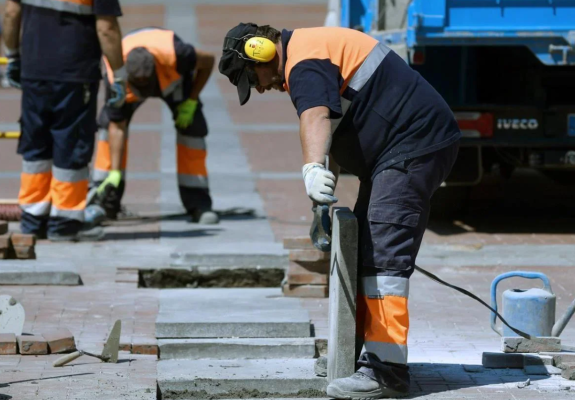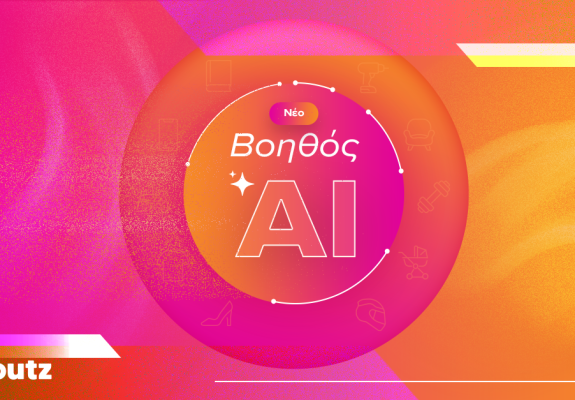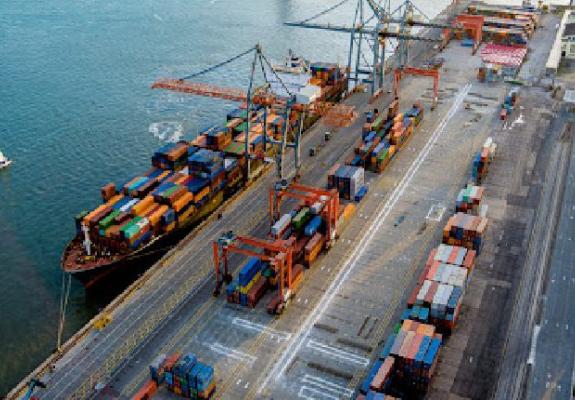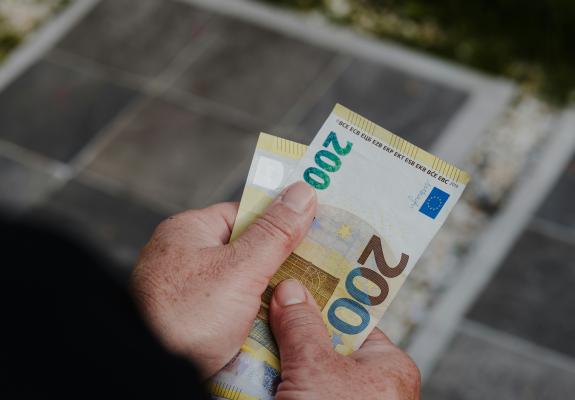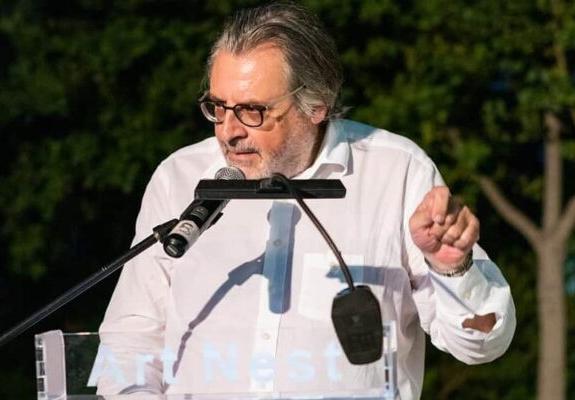CoRES Project: Where Culture Meets Climate Action
Demetra Kallitsi speaks about CoRES, the cultural sector’s green transition, and inclusive environmental decision-making.
CoRES (Creativity, Resilience, Environment, Sustainability) is a pioneering initiative that merges creative and environmental efforts to help strengthen the cultural sector’s readiness for climate challenges. In a time when the climate crisis demands urgent solutions, CoRES fosters cross-disciplinary collaboration among stakeholders in Malta, Greece, and Cyprus, bridging the gap between cultural expression and environmental action. This approach is more crucial than ever as climate change intensifies, affecting heritage, tourism, and cultural practices.
To learn more, we spoke with Demetra Kallitsi, Researcher & Project Manager at AKTI Project and Research Centre, who offered a detailed look into the project. In our conversation, she emphasized the pressing need for an accelerated green transition, grounded in the principle of “Leave No One Behind.” She highlighted the importance of inclusive decision-making and active engagement of the cultural and creative sector in shaping environmental policies for a truly sustainable future.
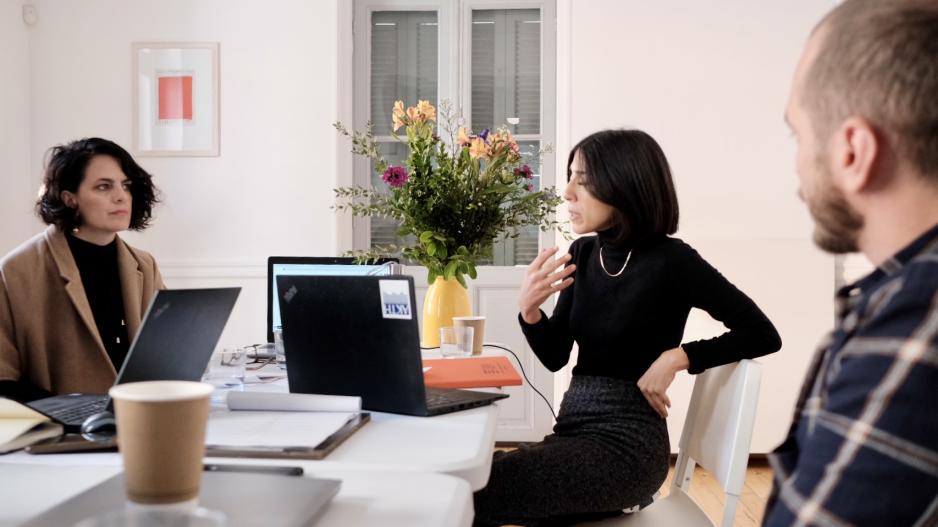
Thank you for having me. Significant progress has been achieved on the road to green transition, but not at the speed and degree required to avoid a climate collapse. Big leaps forward are imperative to avoid the worst. An accelerated approach at a whole society and systems level is required, where the green dimension is at the centre of all aspects of life. A structural green transformation rooted in Principle Two of the United Nations’ Sustainable Development Goals’ (SDGs) Universal Values - ‘Leave No One Behind’.
Participation in environmental decision-making is not only a fundamental right, but rather a necessity for transitioning to sustainability. A transition that demands the inclusion of diverse perspectives in the development of solutions to the pressing climate crisis, transforming current environmental challenges into opportunities for all.
Significant progress on the green transition isn’t enough to avert climate collapse. Big leaps are imperative
CoRES aims to bring together stakeholders from the cultural and creative sector (CCS) with stakeholders from the environmental sector in Malta, Greece and Cyprus, to better understand the interplay of forces between climate change and the CCS, and work together to develop solutions for strengthening the sector’s risk preparedness and resilience to climate change.
CoRES will also contribute to research and data much-needed in the sector to develop efficient evidence-based environmental policies and foster cross-disciplinary knowledge-transfer and collaborations, which could help support the CCS’s competitiveness and economic potential.
Regardless of our degree of vulnerability, climate change impacts affect us all and permeate all sectors - including culture.
Natural heritage, the livelihoods of people operating within the CCS, cultural tourism, oral traditions, performing arts, social practices, etc. across the globe are all severely impacted and vulnerable to the effects of climate change. Yet, they remain largely absent from environmental discourse, including Assessment Reports and Key-Frameworks, such as the Paris Agreement.
CCS is among the most underrepresented and unexplored sectors in terms of environmental discourse and action. In recent years, approximately only 0.23% of official development aid was allocated to culture, while only a meek 13% of voluntary national reviews acknowledge it’s potential to contribute positively to sustainable development.
CCS is vastly underrepresented in environmental action: just 0.23% of aid goes to culture, and only 13% of national reviews see its sustainable potential
Culture’s inclusion in climate action and its integration into national climate change policies and strategies is amongst UNESCO’s top priorities globally.
Public bodies in Germany, Austria, and UK, are among the pioneers in developing and implementing cohesive strategies aimed at mobilizing CCS to respond to the climate crisis. However, smaller institutions often lack the capacity, resources, and technical expertise to devise and implement such strategies.
CoRES’ commitment is to work with stakeholders in the CCS to develop solutions tailored to their needs and priorities, providing them with the necessary tools, knowledge, and resources to independently lead the sector’s environmental transition.
I wouldn’t say that CoRES’ objective is to influence how people operating within the CCS can address climate change but rather to support them in advocating for the importance of CCS’ inclusion in development aid for the mitigation of climate change impact on the sector, and in the decision-making processes for the environmental issues that affect them.
By providing qualitative data and actionable policy recommendations in regard to CCS and climate resilience, CoRES aims to build a bridge between decision-makers and the CCS - and even society at large, which could lead to more inclusive and effective environmental policies, address economic insecurity, accelerate progress towards the SDGs, and improved societal functioning at the local and EU level.
The project unfolds over 3 activity strands; the Decision-support workshops; the Co-creation Youth Cafes; and the Cross-fertilisation Bootcamp.
Decision-support workshops will be implemented in Malta, Greece and Cyprus, bringing together local stakeholders from the environmental sector with stakeholders from the CCS to identify the gaps, needs, and barriers for mobilizing the CCS’ green transition and resilience towards climate change impacts, and to co-design tailored solutions for sector-specific challenges.
Co-creation Youth Cafes is a research methodology developed and implemented by AKTI that builds upon the “Science Café” methodology to better understand the issues faced by communities and guide them towards behavioural changes much needed for the green transition. CoRES will employ this participatory methodology to host open discussions with young creative practitioners (e.g., university students, recent graduates) in Malta, Greece, and Cyprus, to capture their perspectives on the subject matter, thus, fostering youth inclusion in decision-making processes.
CoRES will conclude with a 3-day Cross-fertilisation Bootcamp, in Cyprus, bringing together creative practitioners from Malta, Greece, and Cyprus, to discuss and validate project findings, leading to the development of a solution-oriented policy tool. A robust framework for CCS’ climate resilience and representation advancement across the EU, which will be shared with relevant policy and decision-makers, pushing for its adoption at the institutional and policy level.
With the motto ’Awareness leads to change’ at its core, the project aims to ‘drop a snowflake to create an avalanche’.
What do we mean by that?
CoRES is founded on the climate mainstreaming principle where climate priorities are to be considered and incorporated in all aspects of life and at all levels. It aims to act as a paradigm-shift in climate change mitigation through the inclusion of diverse voices and perspectives for an all-encompassing environmental discourse and action, but also to highlight the importance of a tailored approach for sector-specific environmental challenges; which we hope could inspire and empower other sectors and stakeholders across Europe to follow lead.
Inclusive environmental dialogue, where diverse voices shape policy, can drive regeneration, build resilience, and spur economic growth
An inclusive environmental dialogue, where diverse voices are heard and acted upon in programming and policy-development could help advance environmental regeneration and reduction of climate change impact, and contribute to more cohesive and resilient societies, economic growth and new job creation.
AKTI has 23 years of experience in the field, including an extensive portfolio of projects and collaborators in more than 50 countries across the globe. Our team is committed to advancing environmental sustainability and empowering societies to advocate for their human right to have access to a clean and healthy environment. We work with communities to better understand how they are affected by climate change, including the gaps, needs and barriers for transitioning to more sustainable practices/behaviours, and offer tangible, tailored solutions.
AKTI is CoRES’ Project Coordinator, bringing together a trans-disciplinary group of partners, including Studio18, Malta, and RUNONART, Greece. Each brings to the table a unique set of expertise that is vital for the development of meaningful, impactful and actionable results, as does CCS’ active participation and sense of ownership of project results. In the absence of which, CoRES could not come to be.
Sustainability is not a theory, it is practice.

